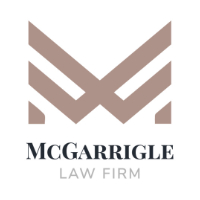Paoli White Collar Crime Lawyer, Pennsylvania
Sponsored Law Firm
-
 x
x

Click For More Info:
-
The Law Offices of Richard L. Cooper, P.A.
848 Brickell Avenue Suite 800 Miami, FL 33131» view mapDWI/DUI, Drug Trafficking, Felony Nationally Ranked Top 40 Under 40
With Richard L. Cooper you can expect a trusted confidant who will work diligently to fully understand your case and determine a road map to help you regain control of your life.
800-756-2781
Daniel McGarrigle
✓ VERIFIEDMilitary & Veterans Appeals, White Collar Crime, DUI-DWI, Criminal
Attorney Daniel McGarrigle is an aggressive advocate and experienced litigator; he has tried hundreds of cases and handled all types of criminal matte... (more)
FREE CONSULTATION
CONTACTJoseph D. Mancano
Real Estate, Lawsuit & Dispute, White Collar Crime, Criminal
Status: In Good Standing Licensed: 45 Years
Andrew P Reeve
Mass Torts, Litigation, Lawsuit & Dispute, White Collar Crime
Status: In Good Standing Licensed: 14 Years
Howard Michael Klein
Lawsuit, White Collar Crime, Criminal, Securities Fraud
Status: In Good Standing Licensed: 48 Years
Edward John King
Real Estate, Pharmaceutical Product, Divorce & Family Law, White Collar Crime
Status: In Good Standing Licensed: 51 Years
Ashly Ryan McGarity
Visa, DUI-DWI, Domestic Violence & Neglect, Firearms, White Collar Crime
Status: In Good Standing

 Richard L. Cooper Miami, FL
Richard L. Cooper Miami, FL AboutMiami Attorney at Law
AboutMiami Attorney at Law ServicesCriminal Defense
ServicesCriminal Defense

